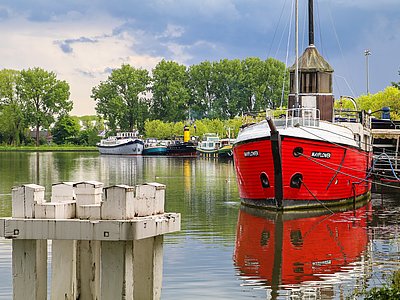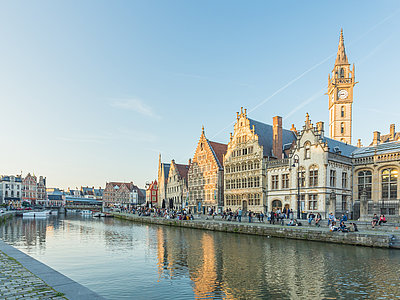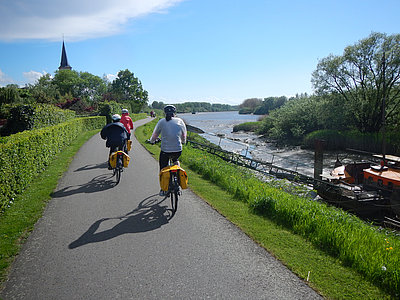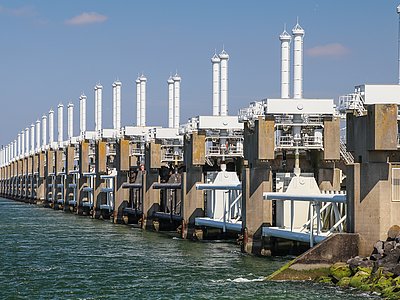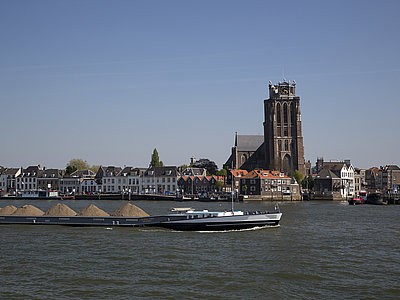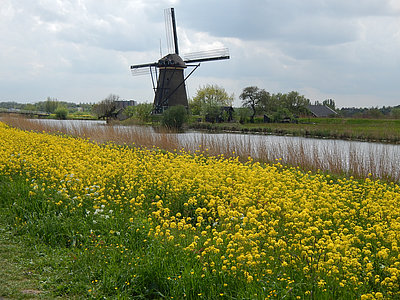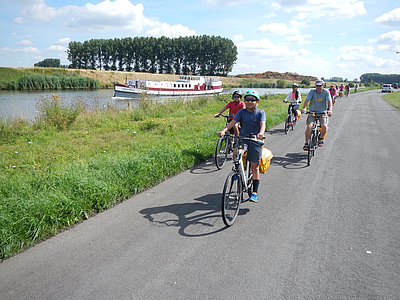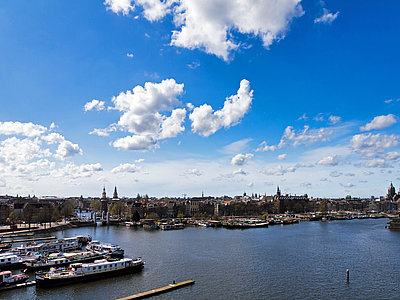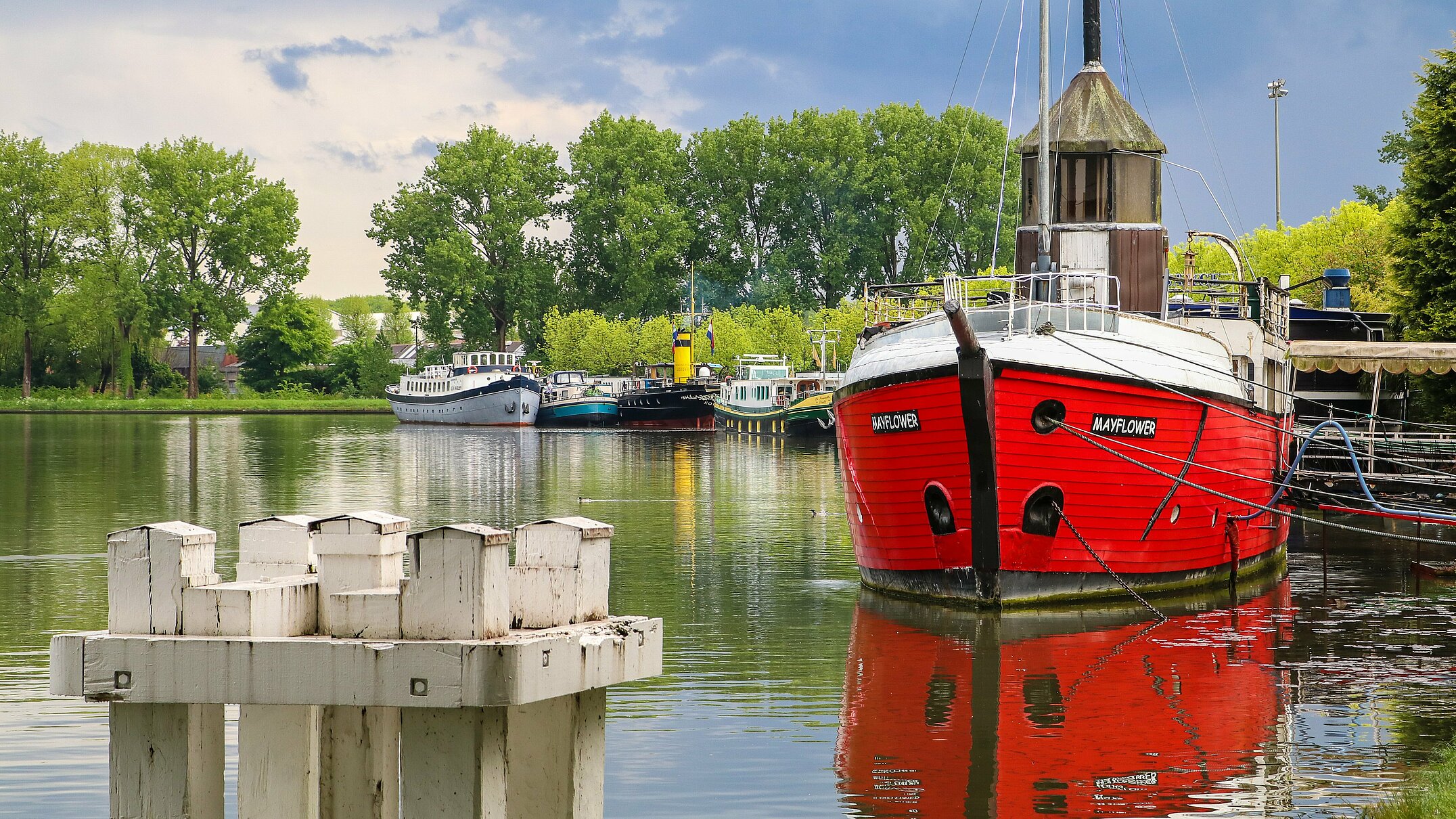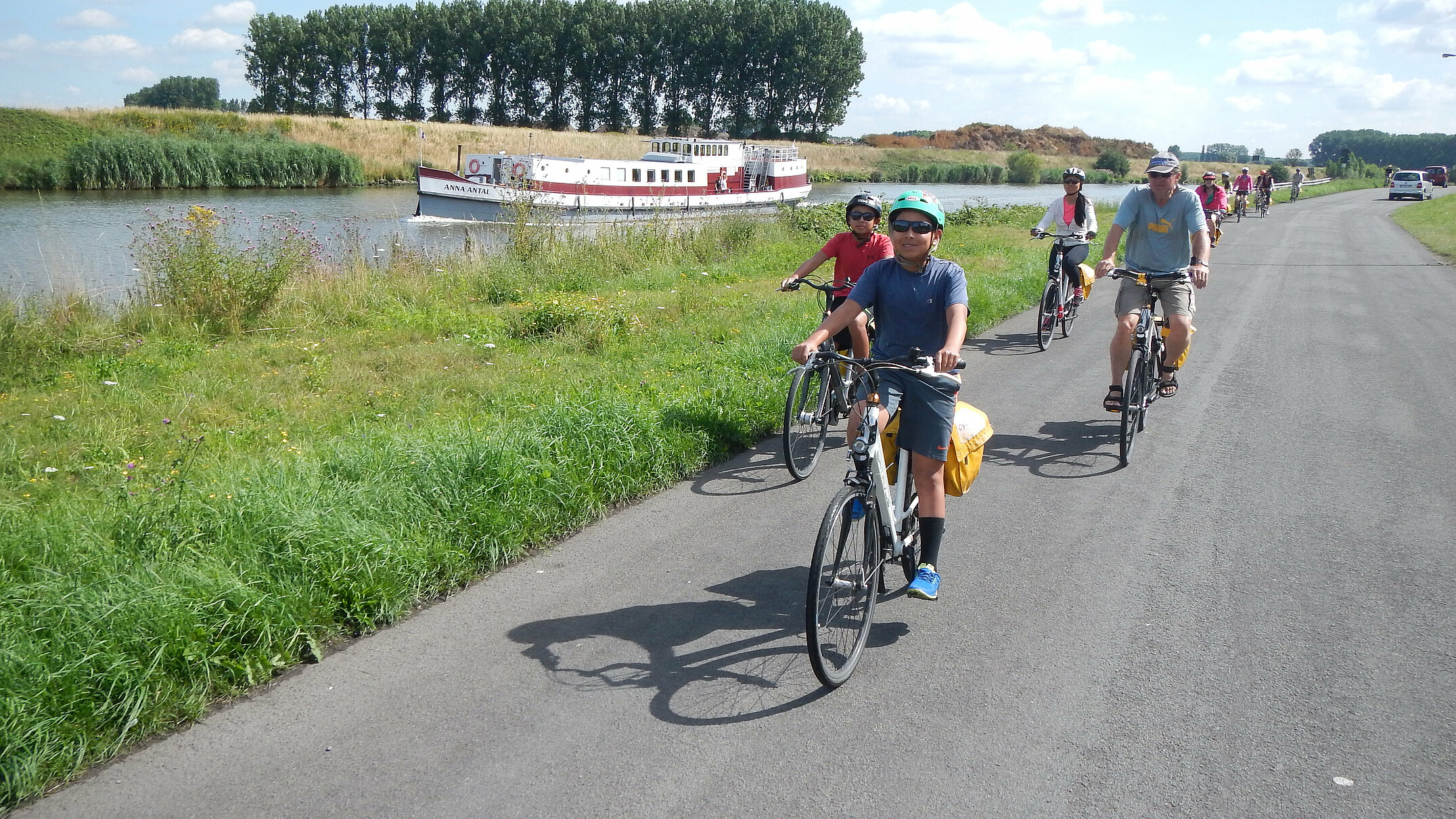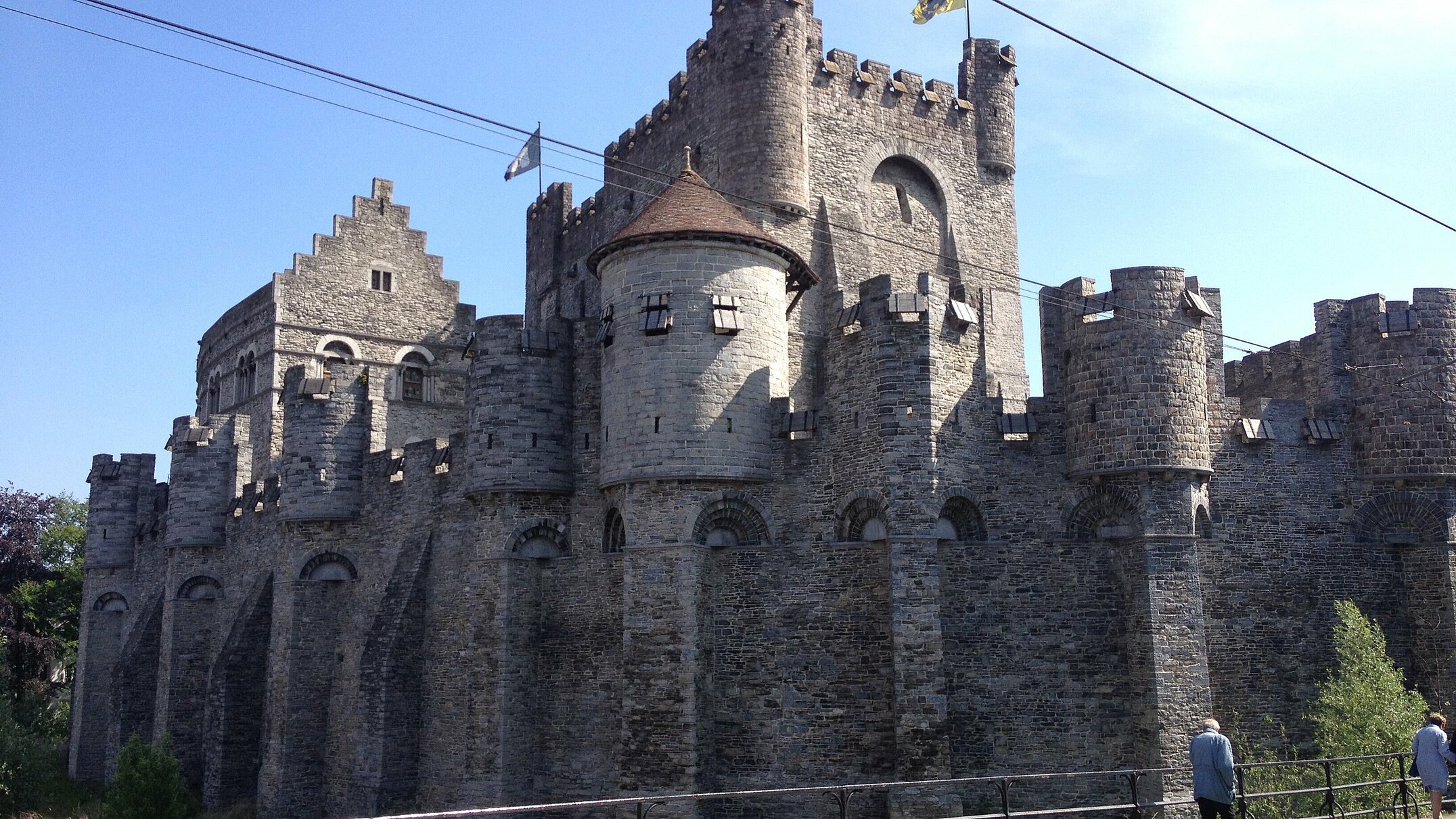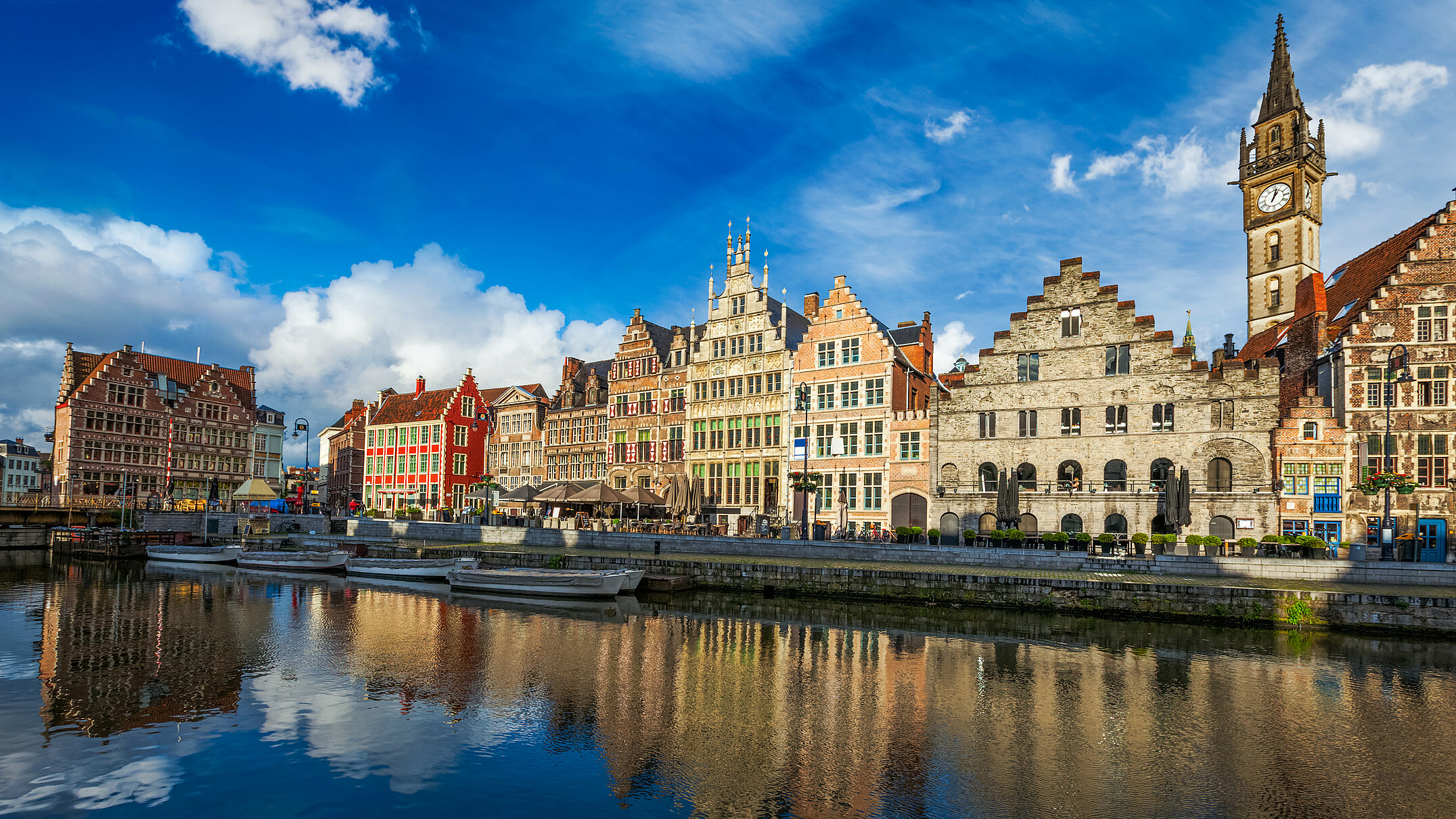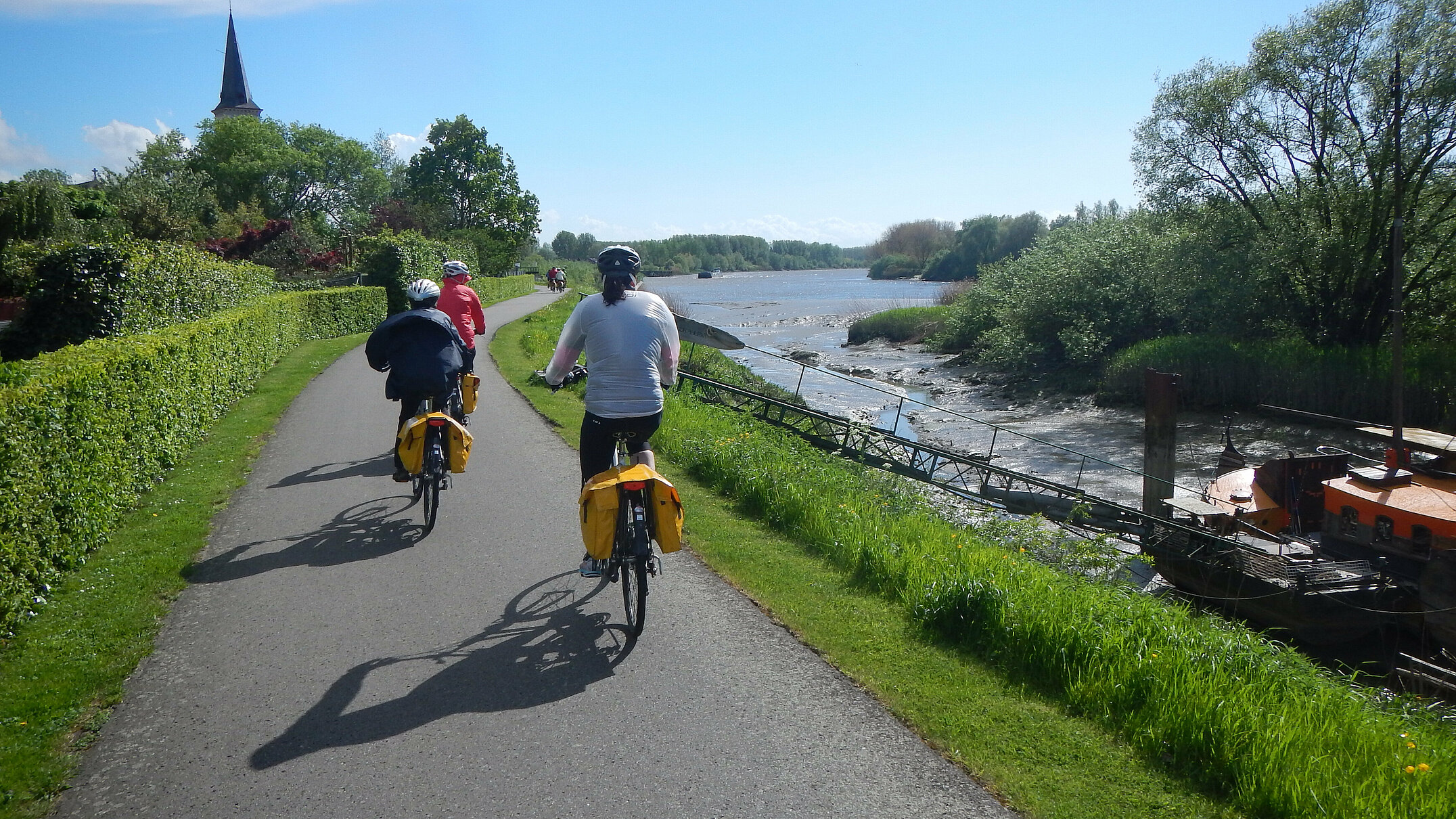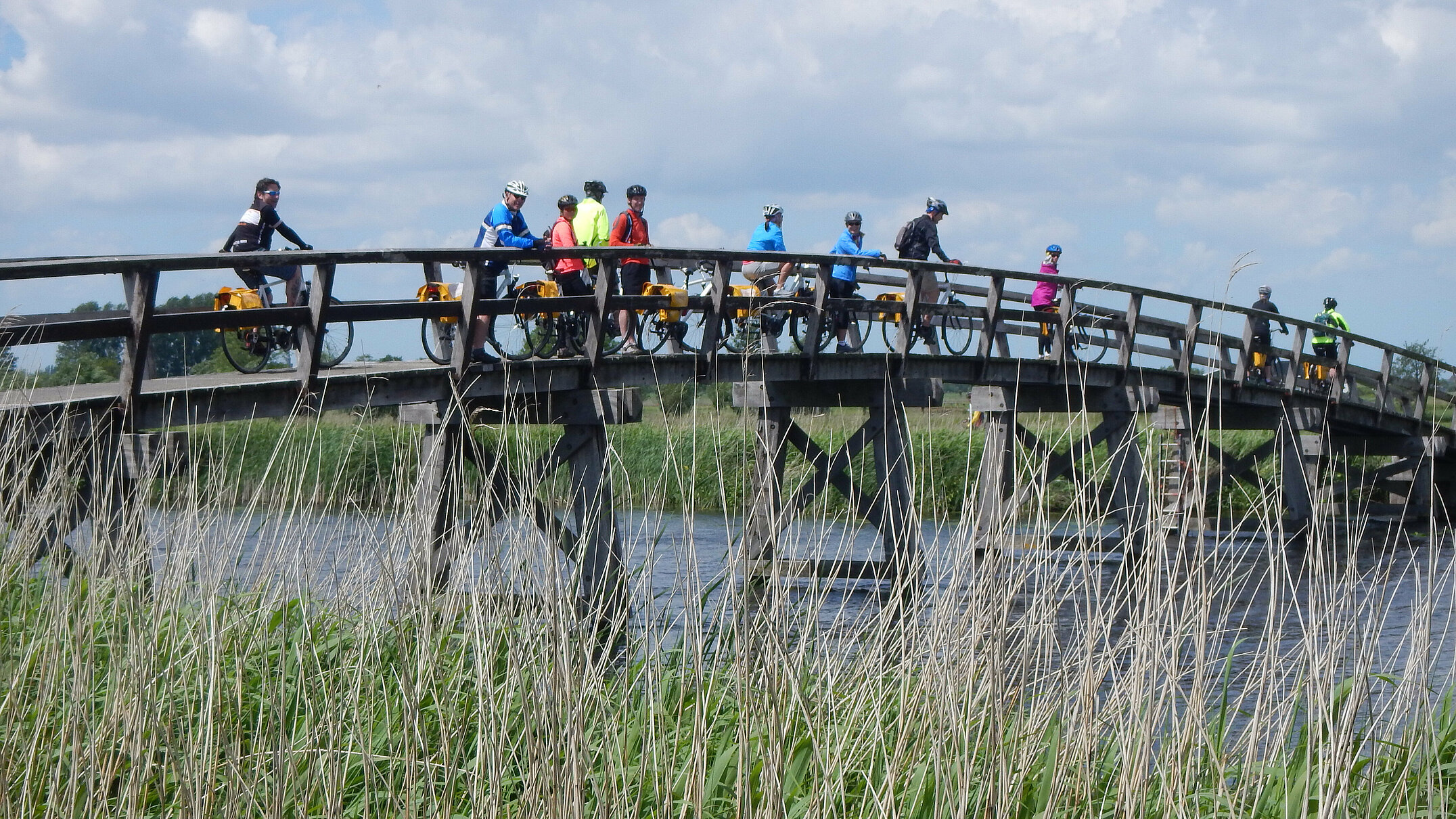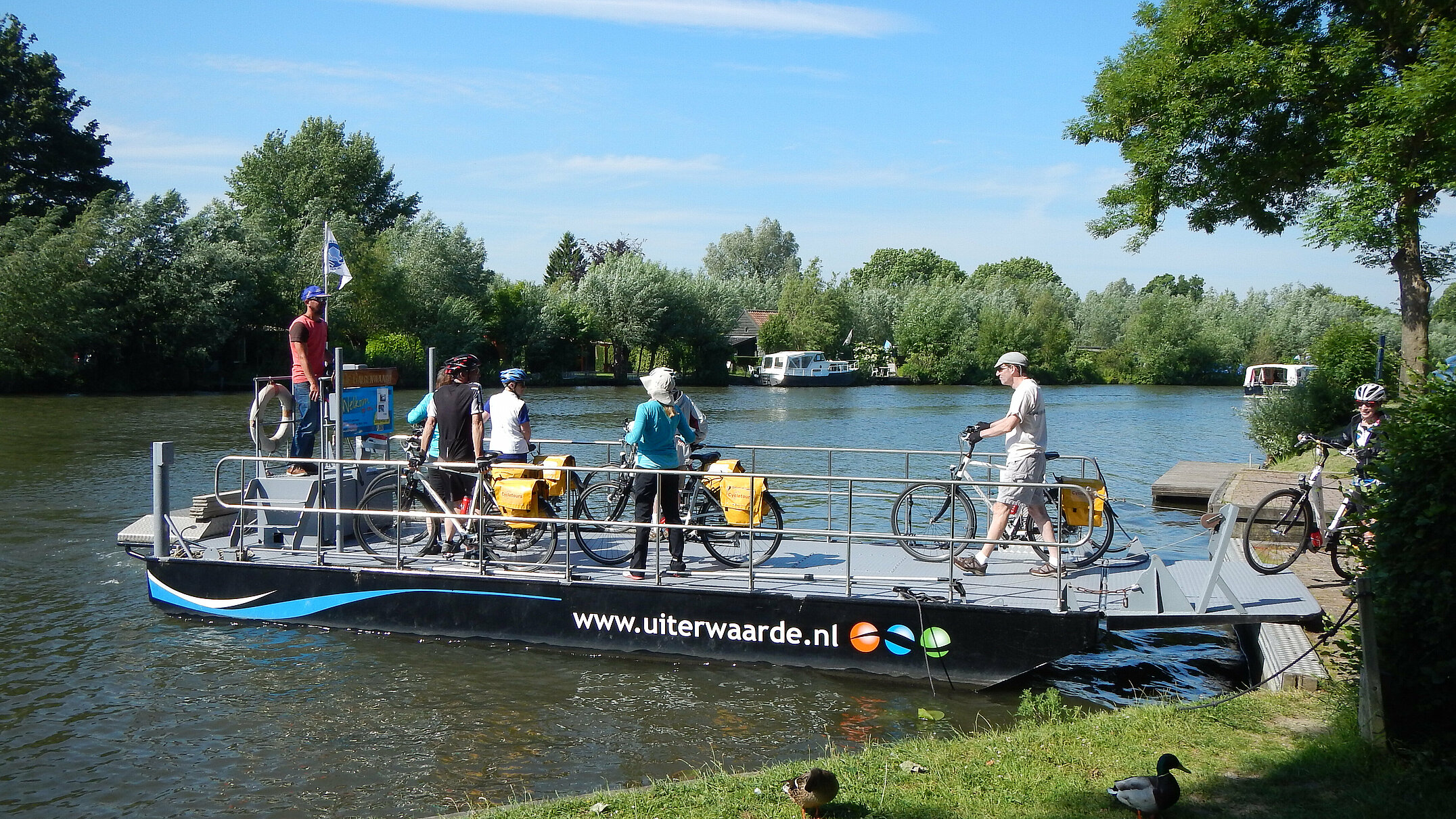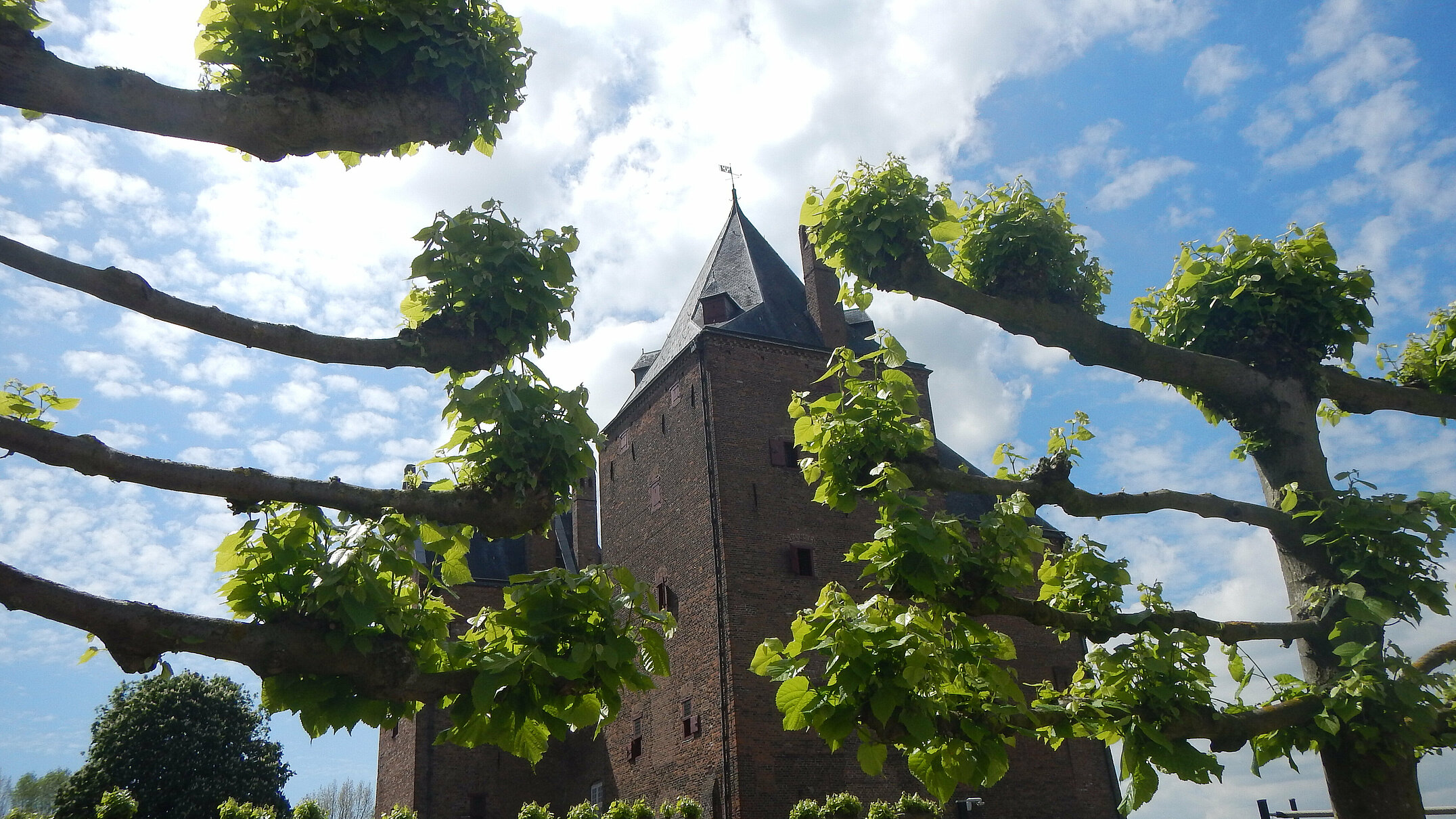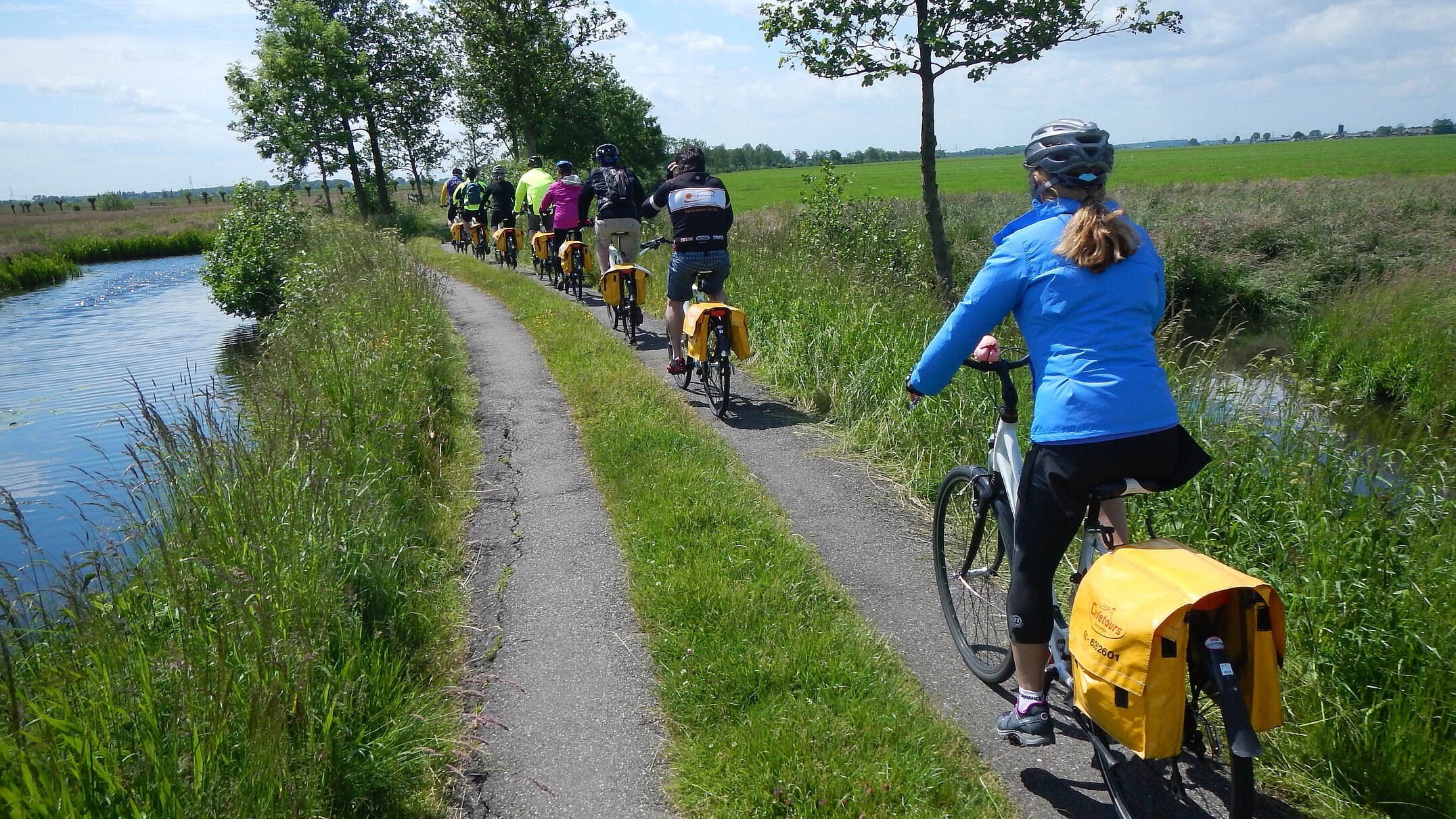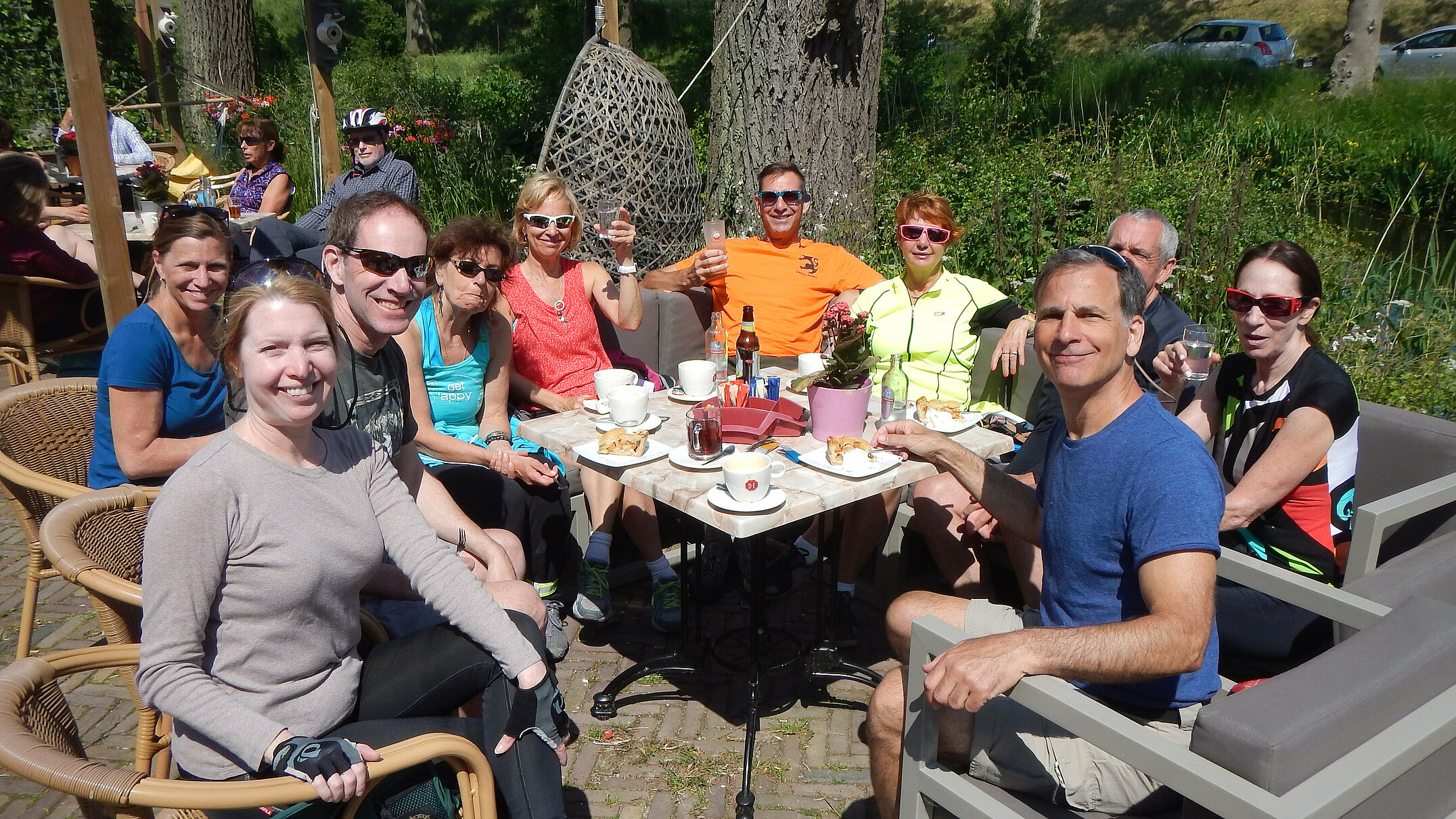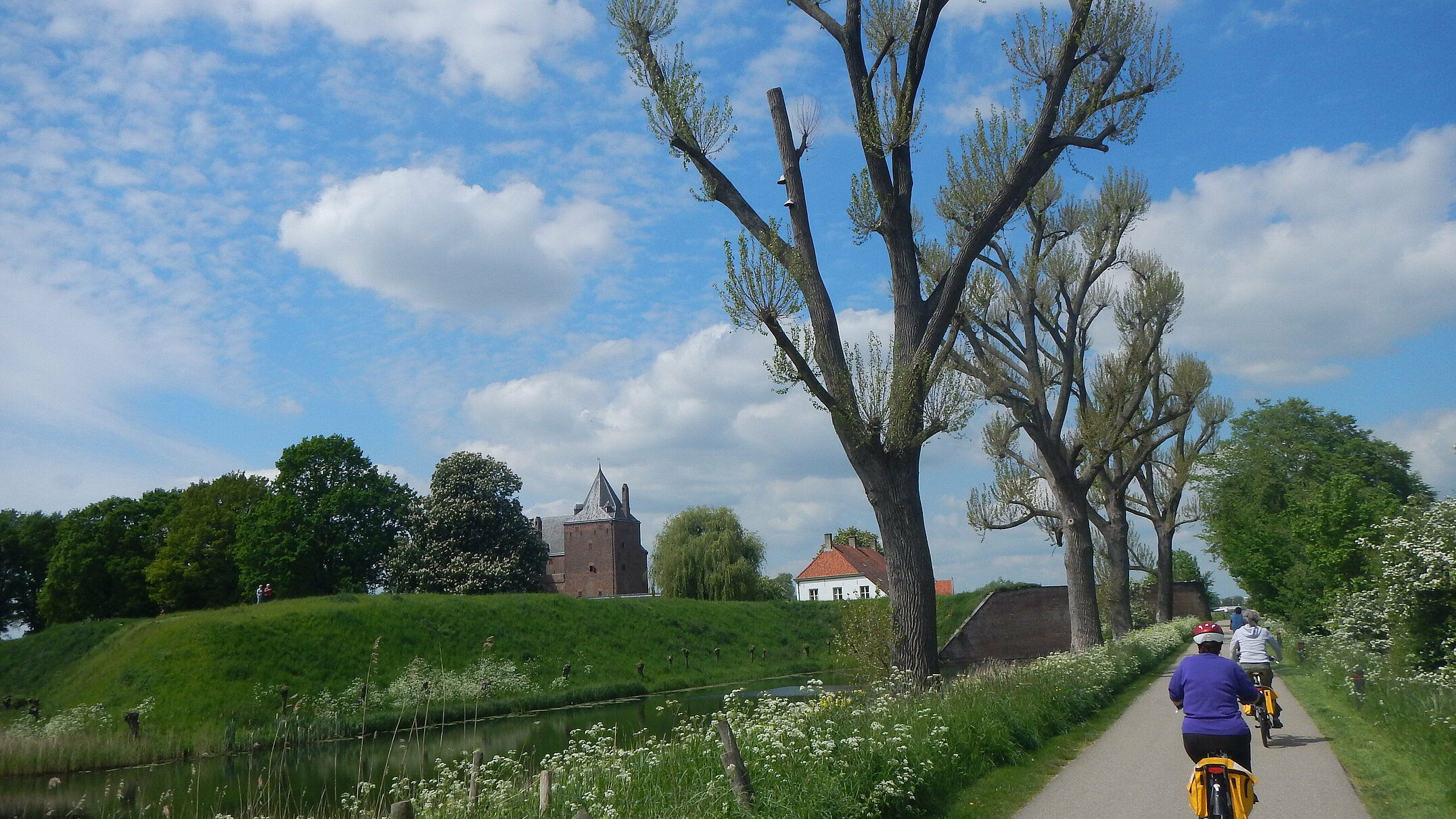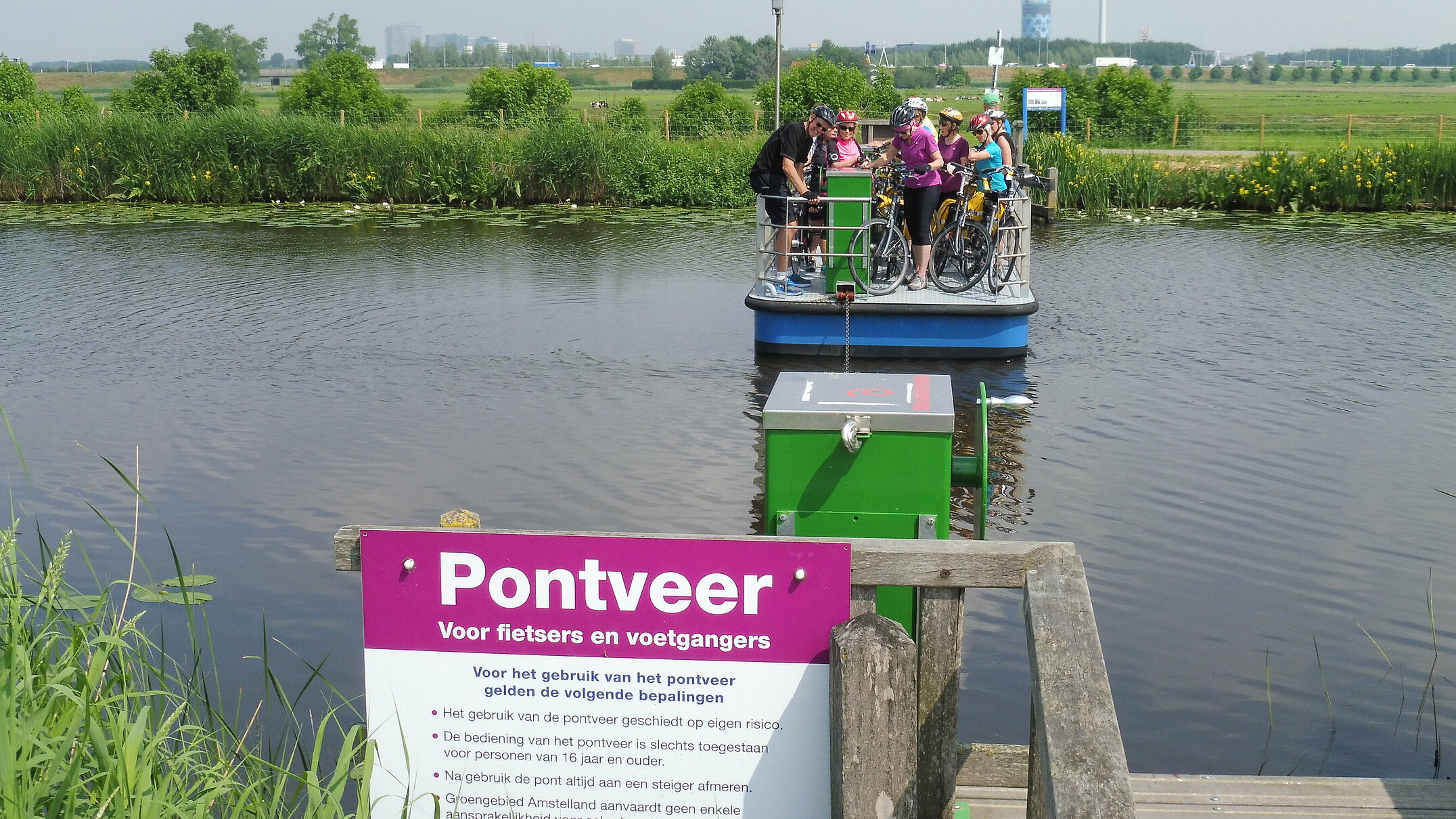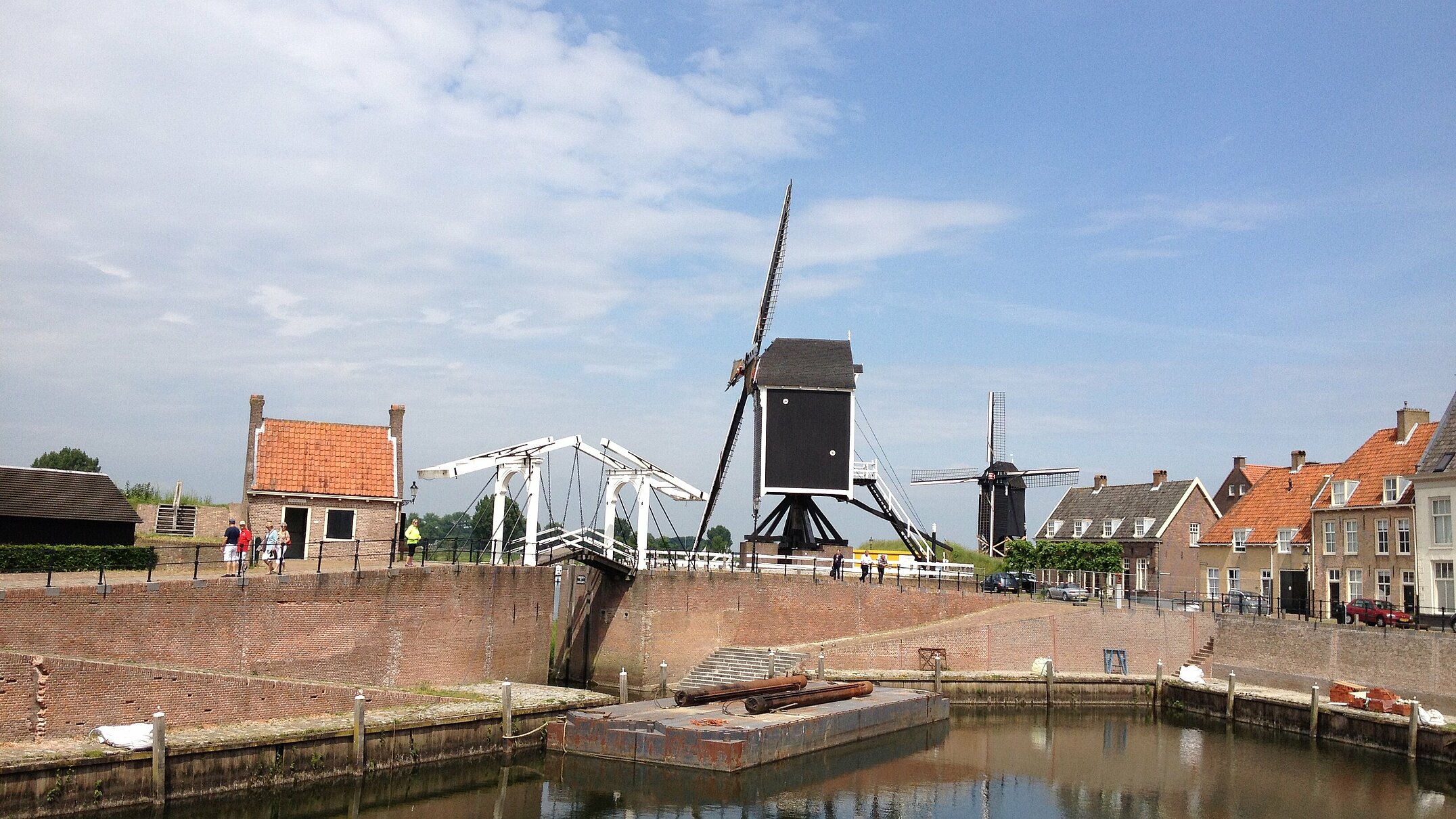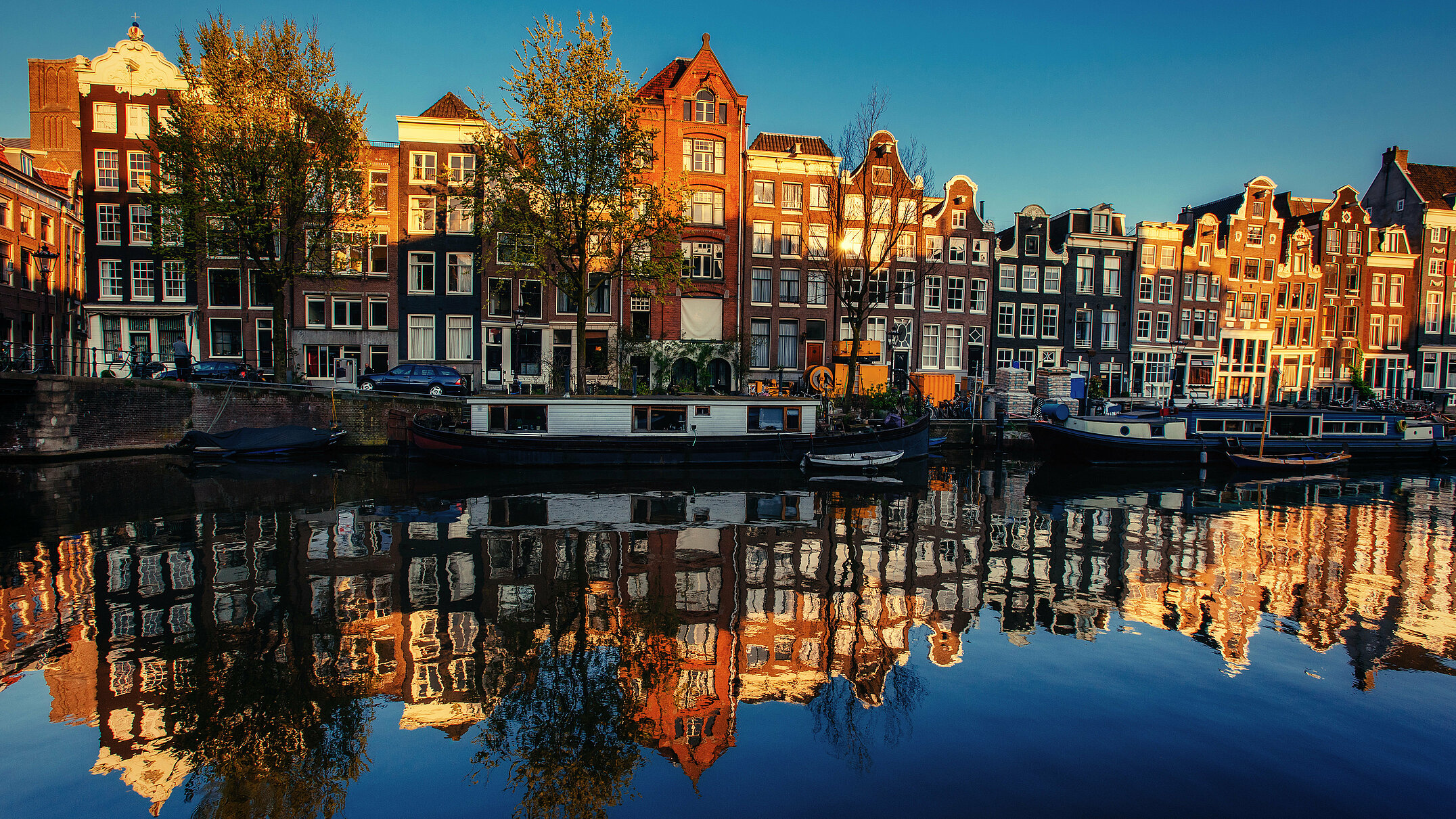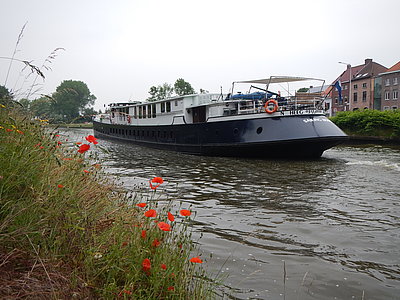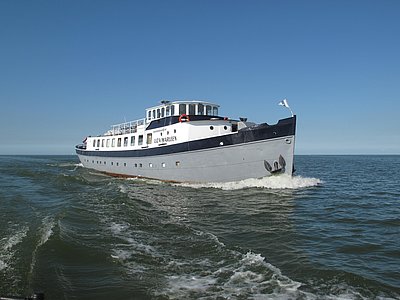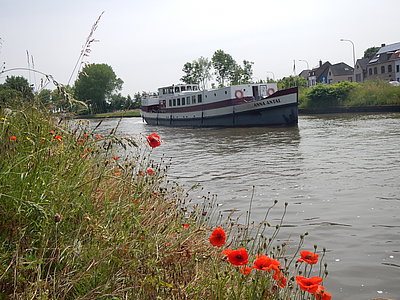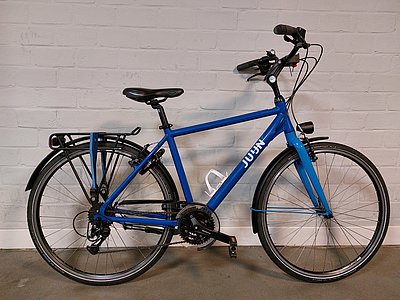Our barge, your hotel
Imagine a floating hotel sailing to the next stage, while you are calmly pedalling along. No lugging of luggage: that is exactly what Bike & Barge is all about! In the pleasant atmosphere on board you can have a chat, go through the day with the others, and enjoy the meals prepared specially for cyclists. In the evenings you can enjoy a drink in the salon or admire the setting sun on deck. Do not expect a cruise ship with its passive luxury. The Bike & Barge Holidays are for people who really enjoy the physical activity of cycling and who value sociability more than wholesale luxury.
Free WiFi is (limited) available in lounge and on deck.
What are the cabins like?
Most cabins are 2-person cabins (twin beds), but some barges also have single and triple cabins. The cabins have central heating and a porthole or window; they are provided with running water (hot and cold), private shower/toilet and 220 voltage. There is limited storage space in the cabin. We recommend 1 suitcase per person. You can slide the suitcase under the bed.
The team
The captain/skipper, the chef and your tour guide all welcome you warmly. They are prepared specifically for these trips and will provide good and safe passage, good meals, and a friendly, pleasant atmosphere. They will, of course, also give you a great deal of interesting information during and after the cycling and sailing. The skipper is responsible for the smooth running of things on board; the cook is in charge of the catering. A tour leader accompanies you during the bike ride and can assist in case of breakdowns. He/She will be your guide to point out the things of interest along the way and is multi-lingual (Dutch/English, some speak German and/or French).
The meals
Your chef is used to cook delicious meals for hungry cyclists. Besides an extensive breakfast, you will also be offered a packed lunch for on the road. It consists of different types of bread and sandwich fillings, juice, a snack and a piece of fruit. Lunch package needs to be prepared by yourself after breakfast. Dinner is different every day. There is a first course, main course and dessert The meals on board are included in the price, as are coffee and tea. Soft drinks and alcoholic drinks can be obtained at a reasonable charge. When you return on board after the day’s cycling, a cup of tea or coffee with a biscuit will be waiting for you.
If you suffer from food allergies or food intolerance (such as lactose- or gluten- intolerance/-allergy) or if you have special meal requirements (vegetarian; pescetarian; gluten free meals etc.), we ask you to mention this when booking, but no later than 14 days before arrival. Diets which need a special preparation or special ingredients can only be offered in limited form. We will do our best to meet your needs, but we also ask for your understanding as due to limited logistic possibilities on a barge we are not able to prepare complete specialized menus and special food requirements cannot always be met in all details.
In case of gluten free or lactose diet, there is an additional charge.
Unfortunately, we are unable to offer vegan meals. The space in the kitchens on our ships is limited (for storage and preparation) and therefore we cannot guarantee that the meals are completely vegan.
You and the group, new friends from around the world!
One of the most attractive aspects of the Bike & Barge holidays is that you encounter an international company on board, including people from e.g. USA, Canada, Australia, France and United Kingdom. It’s a great opportunity for you to get to know various cultures at the same time! We have people of all ages, solo travelers, couples and also families with children (during the school holidays). Most groups are made up of 12 to 26 people.
Cycling in Holland
Holland is a cycling country: 18 million inhabitants all with bikes. The number of cyclists necessitates a cycling infrastructure: cycle paths (30,000 km), cycle routes (long and short distance), cycle bridges, cycle tunnels, cycle ferries and special signposts for cyclists. Cycling is part of normal life in the Netherlands; parents bring their children to school by bike, people go to work by bike, factory workers, doctors, even the prime minister! Cyclists, of course, have to observe traffic rules and regulations. The most important rule is to remember that you are not alone on your bike and that you are sharing the road with your group and other road users. Your guide on board will tell you all you need to know about the traffic rules and regulations.

